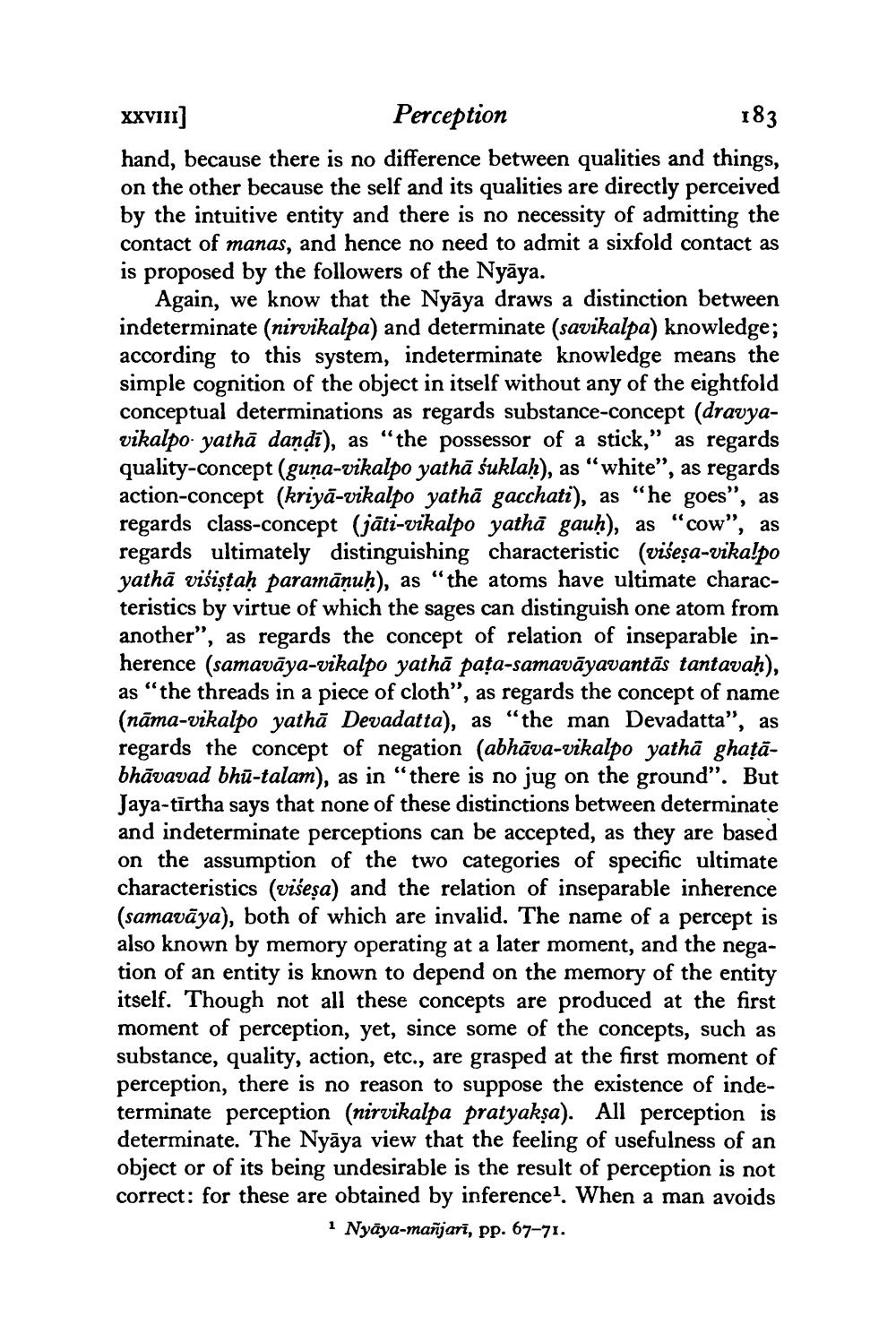________________
XXVIII] Perception
183 hand, because there is no difference between qualities and things, on the other because the self and its qualities are directly perceived by the intuitive entity and there is no necessity of admitting the contact of manas, and hence no need to admit a sixfold contact as is proposed by the followers of the Nyāya.
Again, we know that the Nyāya draws a distinction between indeterminate (nirvikalpa) and determinate (savikalpa) knowledge; according to this system, indeterminate knowledge means the simple cognition of the object in itself without any of the eightfold conceptual determinations as regards substance-concept (dravyavikalpo yathā dandi), as "the possessor of a stick," as regards quality-concept (guna-vikalpo yathā śuklah), as "white", as regards action-concept (kriyā-vikalpo yathā gacchati), as "he goes”, as regards class-concept (jāti-vikalpo yathā gauḥ), as "cow”, as regards ultimately distinguishing characteristic (višeșa-vikalpo yathā višiştah paramānuh), as "the atoms have ultimate characteristics by virtue of which the sages can distinguish one atom from another", as regards the concept of relation of inseparable inherence (samavāya-vikalpo yathā pața-samavāyavantās tantavaḥ), as "the threads in a piece of cloth", as regards the concept of name (nāma-vikalpo yathā Devadatta), as "the man Devadatta", as regards the concept of negation (abhāva-vikalpo yathā ghațābhāvavad bhū-talam), as in “there is no jug on the ground”. But Jaya-tīrtha says that none of these distinctions between determinate and indeterminate perceptions can be accepted, as they are based on the assumption of the two categories of specific ultimate characteristics (višeşa) and the relation of inseparable inherence (samavāya), both of which are invalid. The name of a percept is also known by memory operating at a later moment, and the negation of an entity is known to depend on the memory of the entity itself. Though not all these concepts are produced at the first moment of perception, yet, since some of the concepts, such as substance, quality, action, etc., are grasped at the first moment of perception, there is no reason to suppose the existence of indeterminate perception (nirvikalpa pratyakşa). All perception is determinate. The Nyāya view that the feeling of usefulness of an object or of its being undesirable is the result of perception is not correct: for these are obtained by inference? When a man avoids
1 Nyāya-mañjarī, pp. 67-71.




